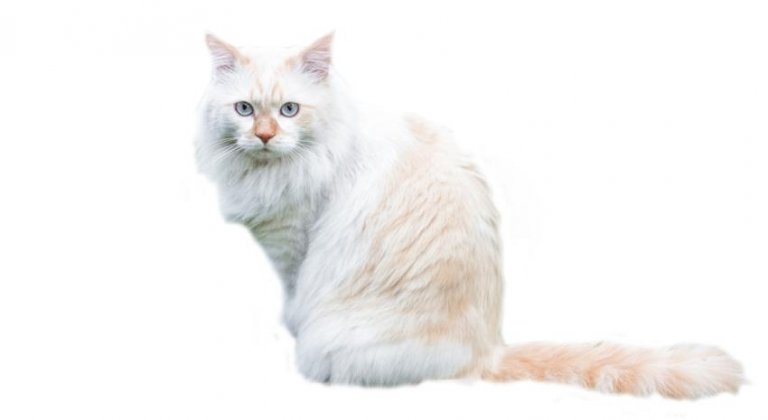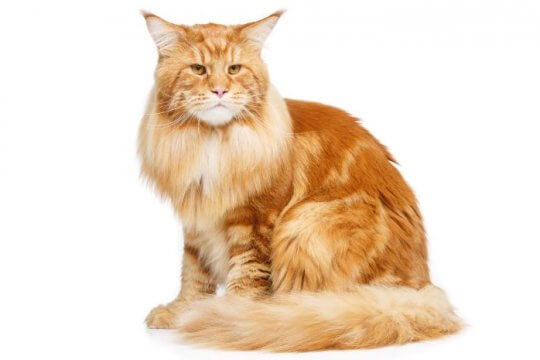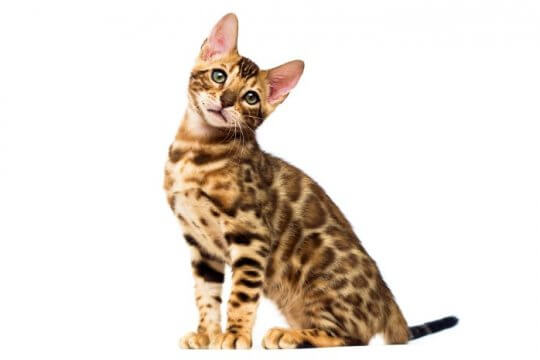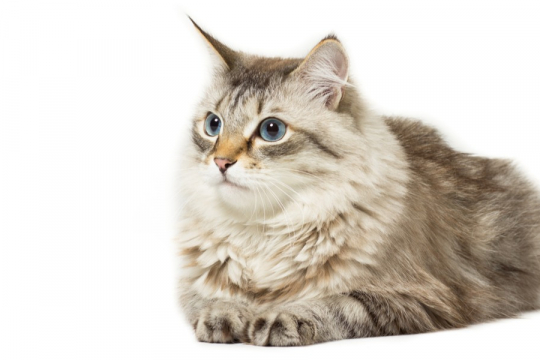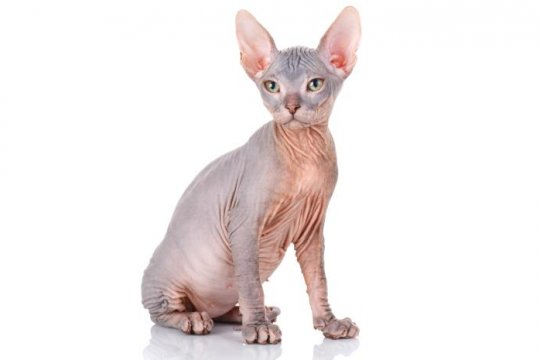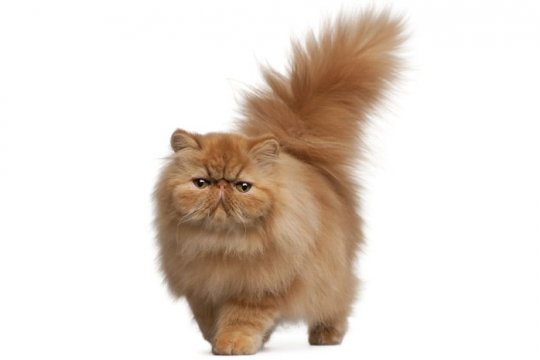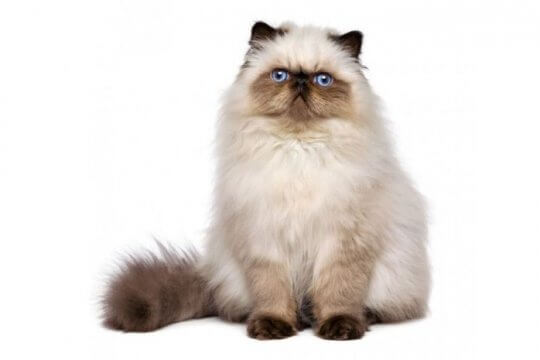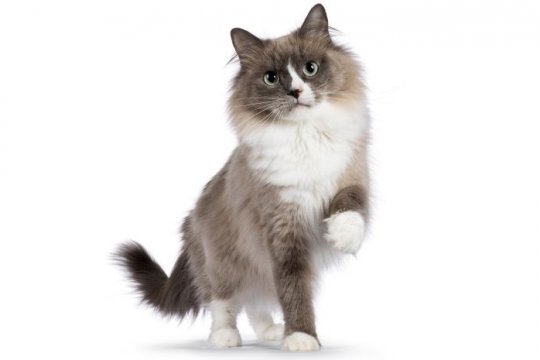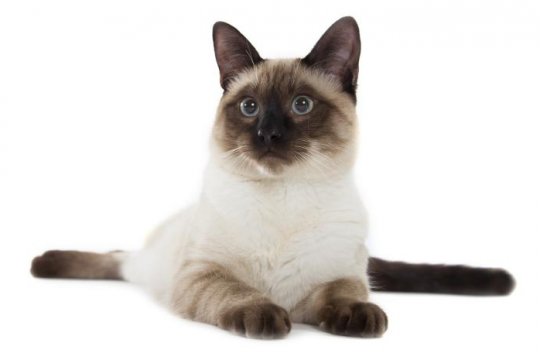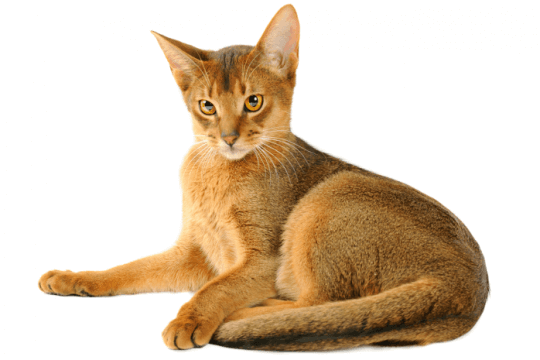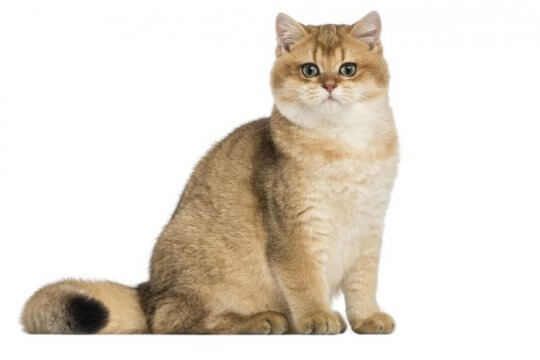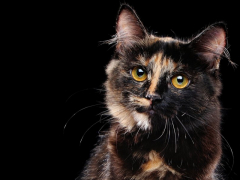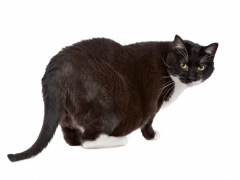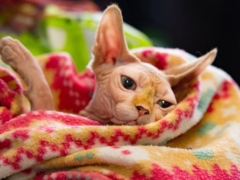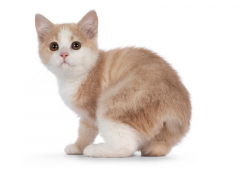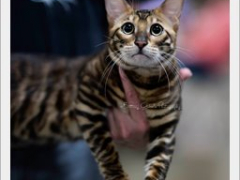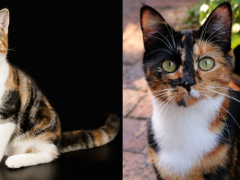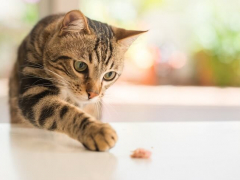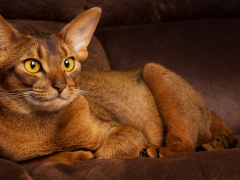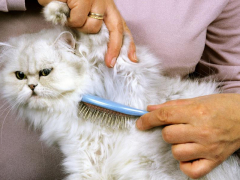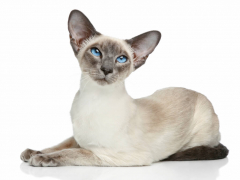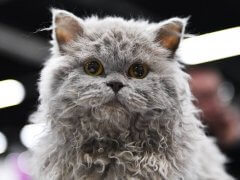Personality and Temperament
Stunning white cats with silky coats, Turkish Vankedisi cats offer more than just great looks: These kitties are friendly and personable, but not quite so clingy as some other breeds such as the Oriental Shorthair.
Turkish Vankedisi cats are incredibly intelligent. They are fond of attention and one of their favorite ways to get it is by encouraging their human friends to play. Don't be surprised if your kitty presents you with a favorite toy in hopes of getting you involved in a game of fetch!
Turkish Vankedisi cats have a tendency to pick a single family member as their favorite, however they are likely to make friends with everyone in the house, including other pets.
Although these kitties look as if they'd rather not muss up their coats, they are athletes at heart. Turkish Vankedisi cats are renowned for their jumping and climbing abilities, and they are exceptional hunters when given the opportunity. In addition, there one of the few breeds that takes very well to leash training. If you've ever wanted to walk your cat through the neighborhood, a Turkish Vankedisi will be happy to accompany you.
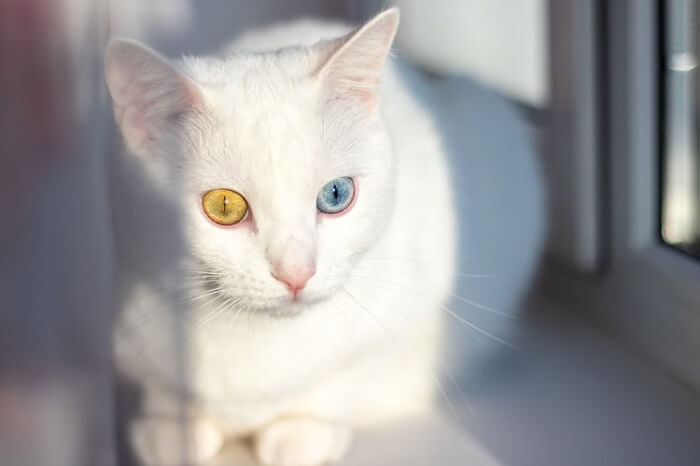
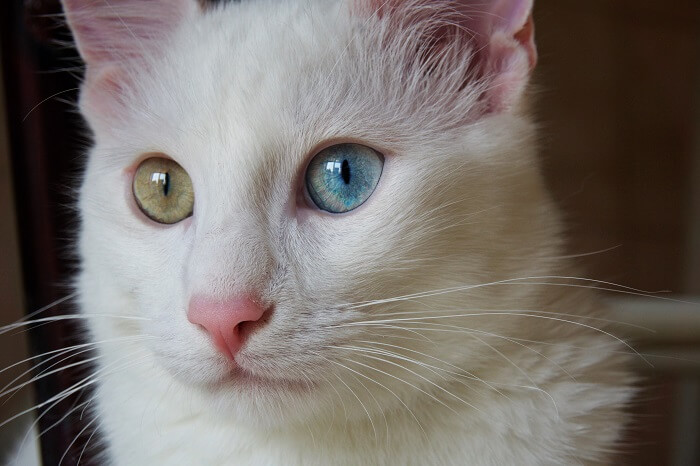
Care
Nutrition
Grooming
Exercise
Health
Turkish Vankedisi cats have no special nutritional needs. If you're not interested in feeding your cat fresh food, we recommend offering them a high-quality commercial brand that relies on real meat or real fish as the number one ingredient. Consider choosing a brand with supplemental omega fatty acids for healthy skin and a healthy, shiny coat.
The Turkish Vankedisi might look like a cat that requires lots of maintenance, but the opposite is true. A quick daily brushing will help keep their coat feeling cashmere-soft and free from tangles.
Routine nail trimming can save your furniture from damage, and regular toothbrushing can help prevent periodontal disease. It's best to teach your kitty to accept these grooming rituals beginning at a young age.
Turkish Vankedisi cats like to nap just as much as other felines, but they tend to be highly active between snooze sessions. These kitties have a natural appreciation for the highest vantage point they can find, so consider treating your pet to a tall cat condo and don't be surprised if they routinely make their way onto other high places in your home. A well-stocked basket of toys is a must have; without plenty of approved playthings, these kitties will quickly find alternatives and make their own fun.
Turkish Vankedisi cats are exceptionally healthy in general, however they can suffer from communicable diseases just as members of other cat breeds can.
These kitties are often deaf, particularly if they have blue eyes. Odd-eyed Turkish Vankedisi cats sometimes suffer from deafness in the ear that's located on the same side as the blue eye.
History
Turkish Vankedisi cats - known as Van Kedi in their native Turkey - share the same history as Turkish Van cats. The breed originates in Eastern Turkey; specifically, it was first noted in the Van region. In fact, the name “Vankedisi” translates to “cat from Van” in Turkish.
The breed is a naturally occurring variety of landrace cat, meaning that individuals breed freely among one another, and distinguishing them from standardized cat breeds that were developed through human intervention and selective breeding. Most feline registries make no distinction between the Turkish Van vs. the Turkish Vankedisi. Instead of classifying these pure white cats as a distinct breed, they’re shown and judged alongside their van-marked cousins.
In Turkey, the opposite is true. There, locals only classify all-white individuals as Van cats, even though the marked variety shares all traits but coat color.
Because of a genetic predisposition to deafness, white Turkish Vankedisi cats are rarely bred to one another. Instead, breeders tend to pair a Van cat with a Vankedisi. The resulting litters may contain both Turkish Van and Vankedisi cats.
Count yourself fortunate if you’re able to adopt one of these amazing kitties! Both Van and Vankedisi cats are rare, even in their native Turkey.
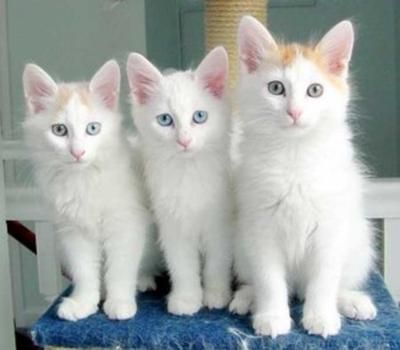
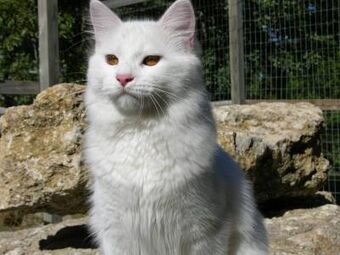
Eyes
Legs & Paws
Tail
The Breed Standard
Body
Head
Ears
Coat
Color
FAQ
How much does a Turkish Vankedisi cat cost?
Turkish Vankedisi cats cost between $800 - $1500.
How big do Turkish Vankedisi cats get?
Turkish Vankedisi cats tend to be large in size. A fully grown Turkish Vankedisi cat might weigh between 7-19 pounds or more and range in height anywhere from about 9"- 11" inches tall.
How long do Turkish Vankedisi cats live?
The Average lifespan for Turkish Vankedisi is 15-16 years.
Do Turkish Vankedisi cats shed?
Turkish Vankedisi are long-haired cats, so you do have to expect a certain amount of shedding from this breed, but they don't shed as much as other cat breeds.
